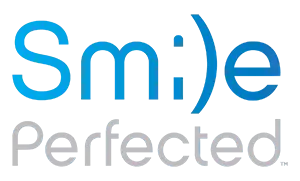Dr. Balanoff Interview: This additional strategy is needed to make morning huddles successful.
Let’s talk about something that drives dentists crazy and we never really know what to do about it because we were never taught what to do about it in dental school. We have a certain amount of frustration when it comes to interacting with the auxiliaries that are there to try and make our job better, to take care of the patients, and just get us through the day. Sometimes the biggest frustration that we have is typically between a dentist and a dental assistant.
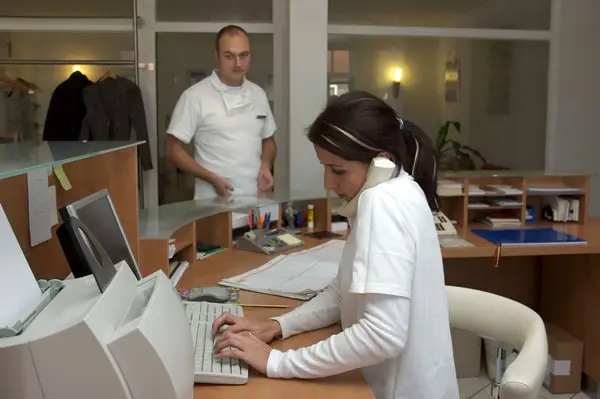
Who Answers the Phone?
So before we start rambling on about how we solve this frustration, let’s just kind of mutually agree that the most important job in the dental office is the person answering the phone, because if that person does a bad job, those patients never make their way into the dental office. So, who’s the most important person in the office? The most important person in the office is who answers the phone, which is typically the admin, administrative assistant, or the office manager. That’s the most important person.
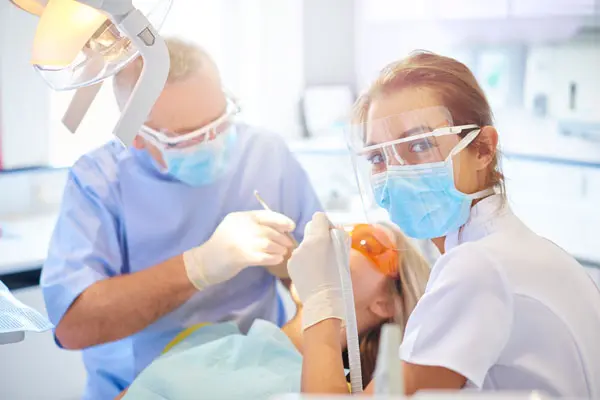
Who Assists the Dentist?
Who has the hardest job in the office? No doubt, hands down, the person with the hardest job in the office is the dental assistant. And why is that? Because that dental assistant, typically female, but there’s a lot more male dental assistants now, are probably 12 to 18 inches away from us every single moment of an eight hour work day.
And as we work, that dental assistant is responsible to create a playing field to allow us to work in that patient’s mouth, which is dry and clean. We know how hard this whole dentistry thing is. Whether you’re doing a three service composite, or doing a crown prep, or whatever you’re doing, you’ve got saliva, you’ve got water, you’ve got spit, you’ve got patients who want to kind of catch their breath. You’ve got patients that want to swallow, and you want to try and finish this procedure as fast as possible. Not necessarily because you’re trying to finish it fast just to get done with it or because you’re trying to make more money. You’re trying to finish it fast to make the patient as comfortable as possible, to get them in and out of the dental chair, because quite frankly, there’s not really too many patients who want to sit in our dental chair.
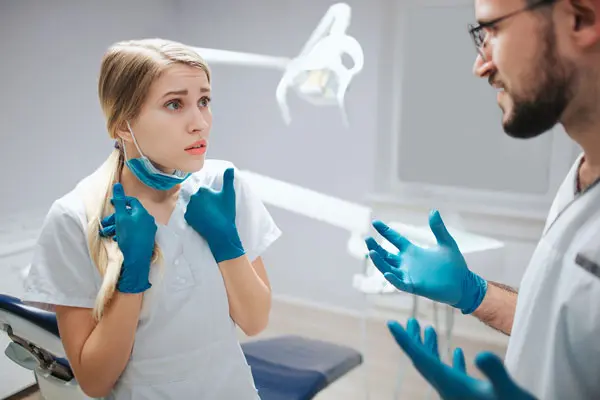
Where does the frustration come from?
The frustration comes in when the dental assistant is trying to make you happy. The dental assistant is trying to read your mind, trying to make you happy. If the dental assistant and your expectations don’t coincide there’s an enormous amount of frustration from the Doctor to the dental assistant. The doctor very often will bark at the dental assistant, maybe not overtly in strong words or anything like that, but bark in a way that the dental assistant now realizes the Doctor is mad at them.
This creates a certain amount of frustration for the dental assistant because really all the dental assistant wants to do is do the best possible job. They want to make you happy. But if you haven’t taken the time to truly explain the nuances of the dental procedure by having a briefing in the morning, whether you call it a morning huddle or your call it a briefing, and talk about specifically each one of the patients.

Additional Dental Office Strategy Needed: Team Debriefings
The most important point that you need to take away right now is the debriefing process at the end of the day to go over what everybody did right and wrong. What you’re going to find out is the dental assistant wants to have things set-up exactly the way you want. Dental auxiliaries want to have the dental materials in the operatory for exactly what you want to do that day. But if you don’t tell him or her in the beginning of the day and then the procedure is done with a lot clunkiness it can be frustrating. On top that, if you don’t talk about this frustration afterwards in a good and positive way those mistakes typically get repeated. Even worse is if the dental assistant over the course of time becomes more and more upset with your lack of communication. This resentment gets so bad they decide to quit. Now you have to bring another assistant in and you’re going to go through a training period again. You’re going to run into the same dissatisfaction because the communication between you and the dental assistant is poor or non-existent.
How in the world is a dental assistant and dental team supposed to anticipate what you want done? You need to spend a lot of time discussing it with them. So let’s through that again.

Typical Morning Huddle Topics:
- How to Handle Emergencies
- Talk about practices financial goals
- Holes in the schedule
- Patients appointment placements
The morning huddle in this regard makes sense but more in-depth points should be added. These additional topics should change daily and help add depth to morning dental meetings.
Additional Topics to Include
- Discuss the specific procedure that you are doing that day
- Your expectations for dental instruments and how equipment will be used
- The supplies that should be readily available
- How the particular patient should be treated and spoken to
- The role other members should play in this day of treatments
These will help to increase team communication create a team unity. Discussion of specific treatments will bring-up additional topics that should be added to the next morning meeting. Don’t make the mistake of treating individuals differently because of the tasks they perform. This creates a sense of difference and separation. When discussing exceptions speak to everyone. Morning huddles should focus the coming day and changes from the previous dental debriefing.
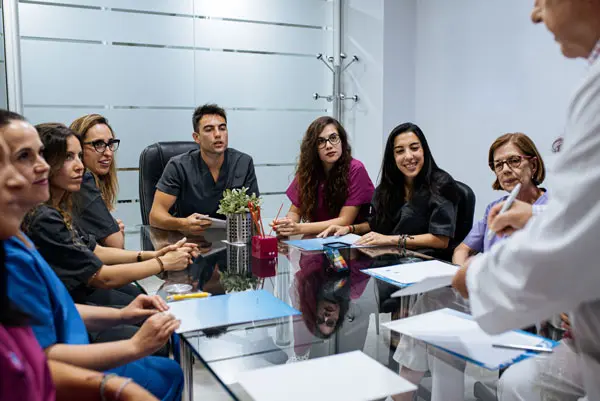
To make morning huddles successful, at day’s end, before everybody’s in a rush to get out of there, you have to have a debriefing meeting with the dental team. Talk about what happened that day. If there was a mistake because someone didn’t listen to you the way you expected, or took poor notes incorrectly in a patient chart, there were missing supplies you needed available or maybe you forgot to tell them to have something available to you…..these things all need to be talked about.
So in the beginning of the morning huddles everyone should be taking notes. They need to be writing everything down to make sure they maintain and exceed your expectations. At the end of the day in the debriefing meeting these notes will be discussed.
- How the day went?
- Where and why mistakes took place?
- What are some positive takeaways?
- How can we improve?
Let’s assume a mistake happens during a procedure. Was it a mistake on the part of the Doctor because they didn’t tell the dental assistant something? Was it a mistake due to a procedure getting a little out of control and the Doctor needed to have stuff above and beyond what they expected? The frustration ended-up being more about the dental procedure than the lack of preparedness on the dental assistant’s part.
In these situations if a Doctor admits, “Hey listen, we were working on Mrs. Jones today and that became a lot more complicated than I thought. I was a little frustrated. I took the frustration out on you. You did an amazing job. Everything that we talked about in the briefing meeting in the morning, you had prepared. It was my clinical frustration that made me vent to you after the procedure. I apologize. I try to avoid lettings this happen in the future. You did a great job and let’s understand what went wrong.” That’s a great conversation to have and the dental assistant is reassured they are an important part of your practice.
Where else does frustration kick into your dental practice? The frustration comes from the day to day processes that the dental office is doing. Doctors all know it is in the hygiene department. Why is this? Because what the hygienist wants id clinical exams or clinical checks by the Doctor after she sees a patient. One of the briefing things that is typically not done in dental office is deciding how the flow of the day is going to be.
In a dental office we have couple of dental assistants working directly with the Doctor. Then we have hygienists who work separately but need the Doctor’s time as well. The frustrating part about this is when does the Doctor get to see the hygiene patients? Everybody assumes that the best time to see the hygiene patient is at the end of the hygiene visit. That’s typically true. However, if you have patients who are seen on a regular basis, there’s no reason why you can’t do an exam check before the hygiene visit if this is a better fit in that days workflow.
How do Doctors know if they are going to be doing the exam check before, during or after the hygiene visit? The hygienists and dental assistants that work together, along with the Doctor, all three have got to talk about the flow of the day in the briefing meeting during the morning huddle. Then as the day progresses and at the end of the day there’s a debriefing again between the dental assistants, the Doctor, and the dental hygienist. When hygienist gets upset is when they start getting behind because the Doctor is delayed seeing a patient. Their frustration level rises when they’ve got a patient in the chair and the patient’s sitting there for five, 10, 15 minutes. They need to get the patient out of their chair so they can clean the room and get ready to take the next patient. If that need is not addressed, modified and corrected, over the course of time, that dental hygienist is going to become dissatisfied with your delinquency. That is something dental offices don’t want that to occur.
So you can start to see the frustration you have as a dentist in your dental office has to do more with communication. Three ways to eliminate frustration:
- Morning Meeting or Huddle
- Operational Workflow Improvements
- End of the Day Debriefing
Let’s review this dental practice cycle of improvement again. We have a dental team who is going to help you treat patients. They all need to be advised of your expectations. We all perform the procedures as part of the designed workflow. At the end of the day, you’re all going to debrief. Everyone talks about the workflow. This should be about what went right and wrong. Dental assistants should discuss the smoothness of procedures. Dental hygienists talk about of a flow into you and what you’re already doing with your patients. They see patients and dismiss the patients. In order for that to occur, she needs the dentist to come into the room and check those patients. Does that check occur at the beginning, the middle or at the end of the hygiene appointment? This should all be planned out. It’s just like choreographing a dance that’s going to go on stage. Everybody needs to know where they’re going to be at a particular time.
The final person that needs to interact with all of this stuff is the administrative assistant or office manager. They need to make appointments, answer phones, talk to patients, check patients out, talk to insurance companies and do all of this stuff while different things are going on. The hand-off now from the dental assistant or the dental hygienist to the administrator at the front needs to be choreographed and scripted as well.
If you see that the admin is on the phone, is at wit’s end or is a little bit flustered don’t just drop the patient off at the front desk and throw the chart across to the administrator expecting them to pick up all the pieces.

Just spend a few seconds at the front desk saying:
“Listen, Mary’s obviously on the phone and really busy. Let me try to help with the checkout process. I won’t be able to do all of it because I’ve got other patients I need to take care of, but I never want you to feel abandoned in our dental office. You’re very important to us and we want to make sure that everything is taken care of for you.”
Try to create a good WOW for those patients by courteously helping them.

Getting Everything Working Together
How do you avoid frustrations in the dental office? At the morning huddle, just don’t just talk about financial goals, don’t talk about holes in the Doctor’s appointment book or vacancies in the hygiene appointment book. This creates an unnecessary amount of pressure on the dental team to make immediate changes.
Morning huddles and debriefings are about winning days that are a month away!
Dr Balanoff
Talk about what is required for each patients from an operation standpoint. Equipment, supplies, customer service; whatever you need to make that patient experience perfect. Whether it’s with the dental assistant, on the Doctor side, hygiene visits or patient administration. As time goes by and processes are perfected the end of the day you have to spend at least 10 minutes debriefing the entire team.
Scheduling Properly for End of the Day Success
Now what very often happens, and you will heard this from other doctors, is the people that work for you, they need to get out of there. They have to get home, they got to pick up their kids in daycare, they got to pick up their kids in after care, they got to pick up their kids or they have to take their kids to different sporting events, or tutors, or piano lessons, or whatever the case is. And you need to understand this has to occur.
Schedule the patients so that you always have enough time at the end of the day to debrief. When you hire employees, they need to understand that there’s going to be a 10-20 minute debriefing, which is mandatory. You’re more than happy to pay them for that time, but they have to be there for that meeting.
Without that meeting, there’s going to be an increasing amount of frustration within your office. This can lead to employees not enjoying being there. The dental assistant’s not going to like it because they are getting frustrated. The hygienist is not going to want to be there because they’re getting frustrated. That frustration from those two auxiliaries will permeate onto the patient. Eventually the patient’s going to say, “I don’t really like being here as well,” and they’re going to leave the practice.
So how do you avoid frustration? You spend time talking to the dental assistant, the office administrators and the hygienist in the morning. You complete the day and then you spend another 10-20 minutes at the end of the day. You have to debrief. That’s how you avoid frustration in the dental office. And as soon as you do this, the fun that you always thought dentistry was going to be is all going to come back to you.
It’s the greatest job, the greatest profession in the world as long as there’s not frustration. Frustration could be squelched by wonderful communication at the beginning of the day and at the end of the day.
Enjoy.
Watch the entire Dr Balanoff interview here –
